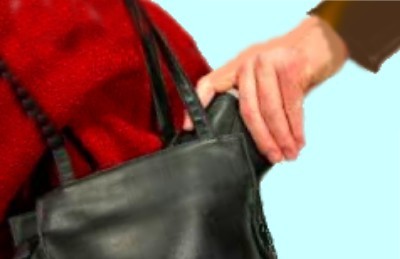
| Ways To Beat Rip-Off Artists While Traveling |
 |
 Senior tourists should always be aware that you’re high on the list of potential victims by scam artists. They know you’re not as agile and quick-thinking as you once were, and they’re ready to pounce, whether by physical attack or to con you into wasting your money. 1. The first way to avoid being ripped off while traveling is to dress down. On a cruise, you can strut into the dining room all gussied up in your finest clothing. However, when you go ashore to that quaint little seaside village, don’t wear bright, gaudy clothing, big hat, designer sunglasses, shining jewelry, big handbag and flashy smartphone. Dress sensibly, similar to what locals wear. If you look and act like an obvious tourist, you may as well paint a target on your back. 2. Do some homework before visiting unfamiliar places. If you plan to traipse around Moscow, explore Cairo, shop in Paris or chow down in Beijing, get on the internet. Find websites that reveal both the positive and negative aspects of those cities. What are the oldest scams? What specific dangers are there for seniors? What neighborhoods should you avoid? 3. If you’re ex-Special Forces or Navy Seal and believe you can handle any situation, remember that your last deployment was 45 years ago. Protect your valuables at all times in a tight-to-the body purse or button-down front pockets. Be aware of pickpockets, including that group of charming little kids who just want to hug you real tight. 4. Carry a minimum stash of cash. Leave the big bills locked in the hotel or ship’s room safe. Buy a bunch of travelers checks, and use them in cities where you know where the company has offices. It’s also a good idea to do all your currency exchanging at American Express or other reliable office. Use credit cards sparingly or not at all. 5. No matter how attractive they look or are recommended by a friendly taxi driver, don’t wander off well-lighted public areas into questionable neighborhoods. A single senior makes a likely target for thieves, especially at night. Some cities are known as drug havens for wandering teens, such as Bangkok and Amsterdam. Innocent-looking street teens may approach for a hand-out, and their desperation can quickly turn violent. 6. Remember back in your summer camp days, when you weren’t allowed to swim in the lake without your buddy? Now that you’re a traveling senior, it’s time to return to the buddy system. Especially if you have a physical handicap, or age has slowed you down, a companion can help you climb stairs, monitor restroom stops, find places to rest and provide security. Muggings are less likely if you’re with another person, or better still, as part of a travel group. 7. Wherever in a foreign city, know local official phone numbers and where police protection is quickly available. Write phone numbers and locations of American officials’ offices on a wallet card, and/or put them on your smartphone instant click call list. 8. Drink with moderation, and never booze it up alone. The buddy system is certainly necessary when you know your evening will involve more than just one glass of local wine. If you’re with a group, and you want to spend the night celebrating, it’s a good idea for at least one other person to be a non-drinker. Make sure all wine and booze served is authentic. 9. Don’t eat food from street carts, skip the home-made cold drinks and stay away from tap water in a foreign city. It looks tempting when a TV food gourmet eats stuff from a Hong Kong vendor. Before the camera was on him, you can bet he made sure the food was super clean and thoroughly cooked. When you were younger and roamed the world in the military or as a student, you could eat just about anything. However, senior stomachs are not as forgiving as young ones, and you don’t want to spoil your travels with midnight sick sessions in the hotel bathroom, or an emergency trip to the hospital. 10. Let’s just sum it all up. If a taxi driver, guide or smiling stranger in a strange city appears to be too friendly, be on your guard or just walk away. If an offer seems too good to be true, it definitely ain’t true. |